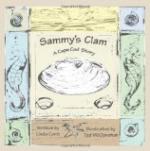It turned out that the man’s name was Lamont, with a colonel’s pennant and a million-dollar mark on the foretop of it, and the girl was his daughter Mabel. They’d been paying six dollars a day each for sea air and clam soup over to the Wattagonsett House, in Harniss, and either the soup or the air had affected the colonel’s head till he imagined he could sail a boat all by his ownty-donty. Well, he’d sailed one acrost the bay and got becalmed, and then the tide took him in amongst the shoals at the mouth of Wellmouth Crick, and there, owing to a mixup of tide, shoals, dark, and an overdose of foolishness, the boat had upset and foundered and the Lamonts had waded half a mile or so to shore. Once on dry land, they’d headed up the bluff for the only port in sight, which was the poorhouse—although they didn’t know it.
The widow and Asaph made ’em as comfortable as they could; rigged ’em up in dry clothes which had belonged to departed paupers, and got ’em something to eat. The Lamonts was what they called “enchanted” with the whole establishment.
“This,” says the colonel, with his mouth full of brown bread, “is delightful, really delightful. The New England hospitality that we read about. So free from ostentation and conventionality.”
When you stop to think of it, you’d scurcely expect to run acrost much ostentation at the poorhouse, but, of course, the colonel didn’t know, and he praised everything so like Sam Hill, that the widow was ashamed to break the news to him. And Ase kept quiet, too, you can be sure of that. As for Mabel, she was one of them gushy, goo-gooey kind of girls, and she was as struck with the shebang as her dad. She said the house itself was a “perfect dear.”
And after supper they paired off and got to talking, the colonel with Mrs. Badger, and Asaph with Mabel. Now, I can just imagine how Ase talked to that poor, unsuspecting young female. He sartin did love an audience, and here was one that didn’t know him nor his history, nor nothing. He played the sad and mysterious. You could see that he was a blighted bud, all right. He was a man with a hidden sorrer, and the way he’d sigh and change the subject when it come to embarrassing questions was enough to bring tears to a graven image, let alone a romantic girl just out of boarding school.
Then, after a spell of this, Mabel wanted to be shown the house, so as to see the “sweet, old-fashioned rooms.” And she wanted papa to see ’em, too, so Ase led the way, like the talking man in the dime museum. And the way them Lamonts agonized over every rag mat, and corded bedstead was something past belief. When they was saying good-night—they had to stay all night because their own clothes wa’n’t dry and those they had on were more picturesque than stylish—Mabel turns to her father and says she:
“Papa, dear,” she says, “I believe that at last we’ve found the very thing we’ve been looking for.”




